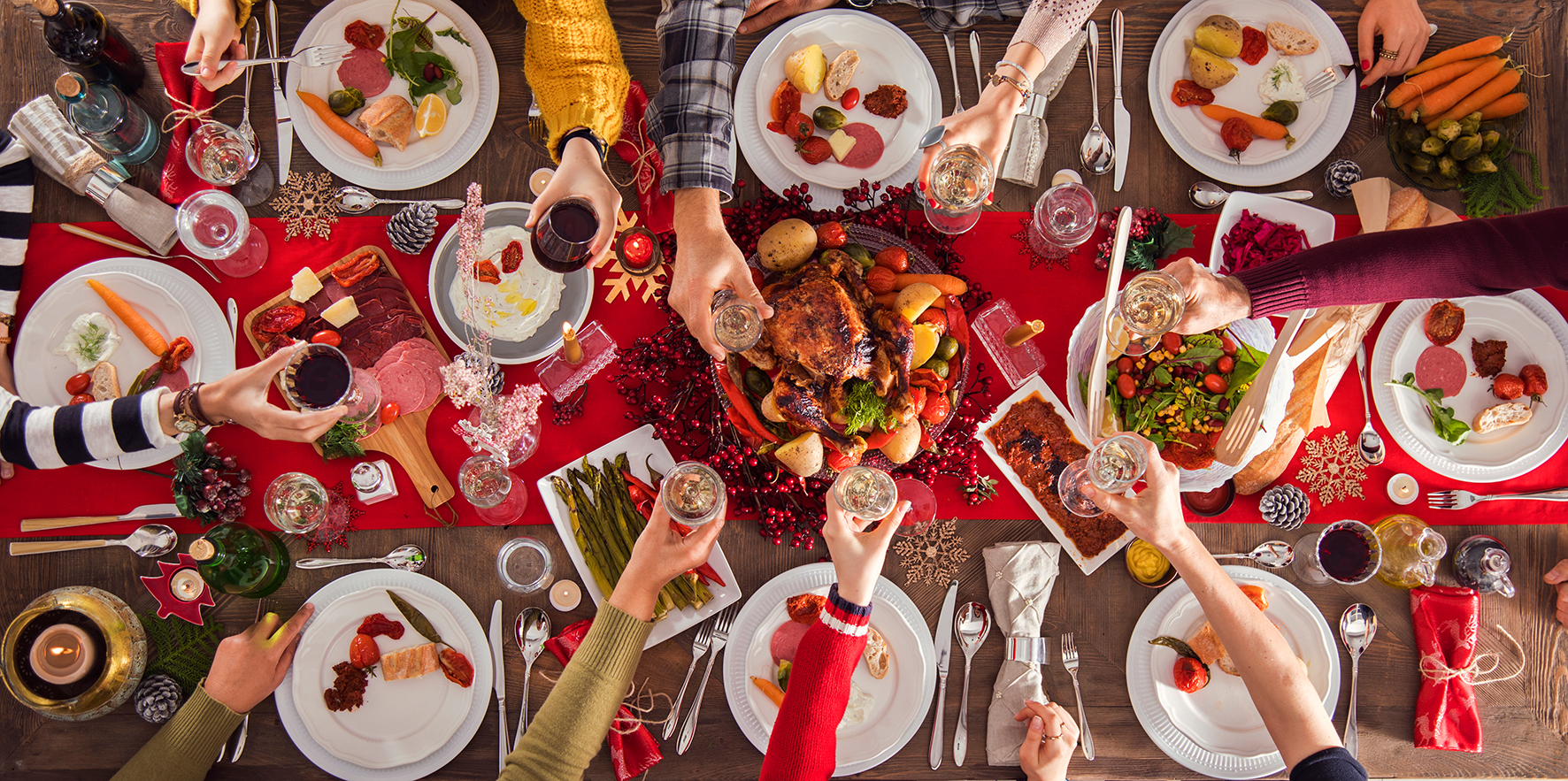A nutrition expert has shared how to make festive foods more fitness-friendly this Christmas by making a few minor changes – while still enjoying seasonal treats.
The sports nutrition experts at Bulk™ analysed the most popular foods consumed over the festive period to name the nation’s favourites and make healthy suggestions based on their nutritional value to help people stay on track with their fitness goals.
While a classic roast turkey dinner with all the trimmings is the meal of choice for Christmas day, it comes with a hefty calorie intake – sometimes more than 2,000 calories – which is the total daily amount recommended for women in the UK.
However, it turns out that Brits could shave a whopping 909 calories off their favourite dish by making a few simple swaps and employing the help of an air fryer.
Starting with the main event, the nutrition expert says turkey can stay as it is ideal for both the festive season and meal prepping in general, thanks to its protein content. In fact, turkey breast has the highest protein density of any meat, with 29g of protein per 100g.
However, nutritional values can soon be compromised, with the most popular centrepiece recipe calling for ten rashers of bacon and 85g of butter. But, by switching to lower-calorie counterparts, foodies can save a total of 407 calories, or 51 calories per portion.
Similar savings can also be made for gravy by switching out calorie-dense flour for smaller amounts of cornflour, as well as substituting white wine for vegetable stock. These small tweaks add up to save 49 calories a portion.

The biggest saving can be made when crisping roast potatoes, which is key, given 88% of people who eat Christmas dinners include roasties on their plate, according to YouGov.
Traditionally, roast potatoes are crisped using duck or goose fat or beef dripping, which can be exceptionally calorific. But, by using an air fryer and just a small amount of olive oil, calories can be reduced by almost two-thirds (62%), dropping from 391 to 148 calories.
Some may think adding vegetables to a Christmas dinner, such as carrots and Brussels sprouts, can make it healthier. However, many recipes call for lashings of oil and supplementary condiments like honey, which can quickly increase the calorie content.
Switching from roasting to steaming carrots, brussels sprouts and parsnips not only retains more nutritional value but can cut calorie intake by 50% from 465 calories to 235 calories.
And while it’s easy to indulge in the foods that only come out at Christmas time – including bread sauce, pigs in blankets and cranberry sauce – the experts have found ways to ensure health is the priority so that we are still able to enjoy these seasonal treats.
By investing a bit more time in making the bread and cranberry sauce from scratch, along with steaming Brussels sprouts and making a few tweaks to the pigs in blankets, diners can save an astonishing 377 calories from their festive feast.
Although Christmas dinner is the main event on the 25th of December (after Santa has visited, of course), many people look forward to a tipple or two while opening presents, preparing the turkey, or snuggling up to watch a Christmas movie.
Prosecco and spirits with mixers are the preferred choices, and the experts reveal that there are ways to enjoy a tipple while minimising the calories so that you don’t have to miss out.
For those who prefer bubbles, prosecco is an excellent choice as it has a lower calorie content than champagne, making it lighter in calories.
Tipsy toasters can go one step further, though, by opting for Proseccos that feature ‘brut’ on the label, which is lighter still. Compared with Prosecco Demi-sec (a sweet prosecco), drinkers can cut up to 60 calories per glass – or even more if it’s diluted with orange juice.
Spirit-wise, vodka-based drinks are best for those watching calories as the Russian alcohol has the least calories of any spirit at 100 calories per 50ml measure.
Discussing how to take a balanced approach to nutrition over Christmas, a Bulk™ spokesperson says: “Christmas is a time to kick back and relax with friends and family, but many fitness-focused people can find it challenging as they juggle watching their nutritional intake alongside celebrating and indulging with their loved ones.
“Our suggestions may be able to help those looking to minimise the damage excess calories can have over the festive period when it is common to eat to excess – and while you’re encouraged to enjoy yourself, please make sure that you’re eating a balanced diet and that you’re consuming what you love in moderation.
“Although we would not advise anyone to begin a new nutritional journey over the festive period, we hope our recommendations will help make people more mindful of the food they enjoy this Christmas – and will also prevent you having to completely start from scratch when setting health-based resolutions in the New Year.”





